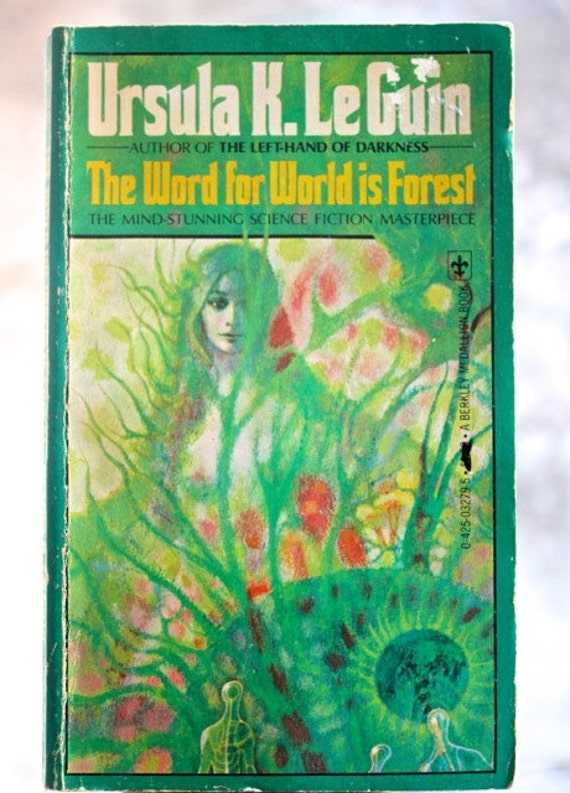

It also explores themes of sensitivity to the environment, and of connections between language and culture. The novel carries strongly anti-colonial and anti-militaristic overtones, driven partly by Le Guin's negative reaction to the Vietnam War. However, in the process their own peaceful culture is introduced to mass violence for the first time.


Eventually, one of the natives, whose wife was raped and killed by a Terran military captain, leads a revolt against the Terrans, and succeeds in getting them to leave the planet. The colonists have enslaved the completely non-aggressive native Athsheans, and treat them very harshly. The story focuses on a military logging colony set up on the fictional planet of Athshe by people from Earth (referred to as "Terra").

Le Guin, first published in the United States in 1972 as a part of the anthology Again, Dangerous Visions, and published as a separate book in 1976 by Berkley Books. Today, her name is synonymous with using the “safe, sterile laboratory” of the future and fictional world in order to examine the nature of reality the issues at the heart of the human condition and the possibilities and dangers that humanity faces as it expands, changes, and seeks to spread its own influence.The Word for World Is Forest is a science fiction novella by American writer Ursula K. Le Guin was responsible for revolutionizing the genre by incorporating literary, lyrical prose Taoist influences and themes of feminism, anarchism, and environmentalism into her many works. Nevertheless, her enduring influence on the genre inspired writers like David Mitchell ( Cloud Atlas), Neil Gaiman ( American Gods The Sandman), Kelly Link ( Magic for Beginners), and Jeff VanderMeer ( Annihilation). Although she was known throughout her life as “America’s greatest living science fiction writer,” she balked at being put in a box as a sci-fi writer and preferred to be known simply as a novelist. After studying at Radcliffe College (present-day Harvard University) and Columbia University, she worked as a secretary and a French teacher and eventually as a full-time writer of science fiction. Le Guin was born in Berkeley, California, to anthropologist parents.


 0 kommentar(er)
0 kommentar(er)
